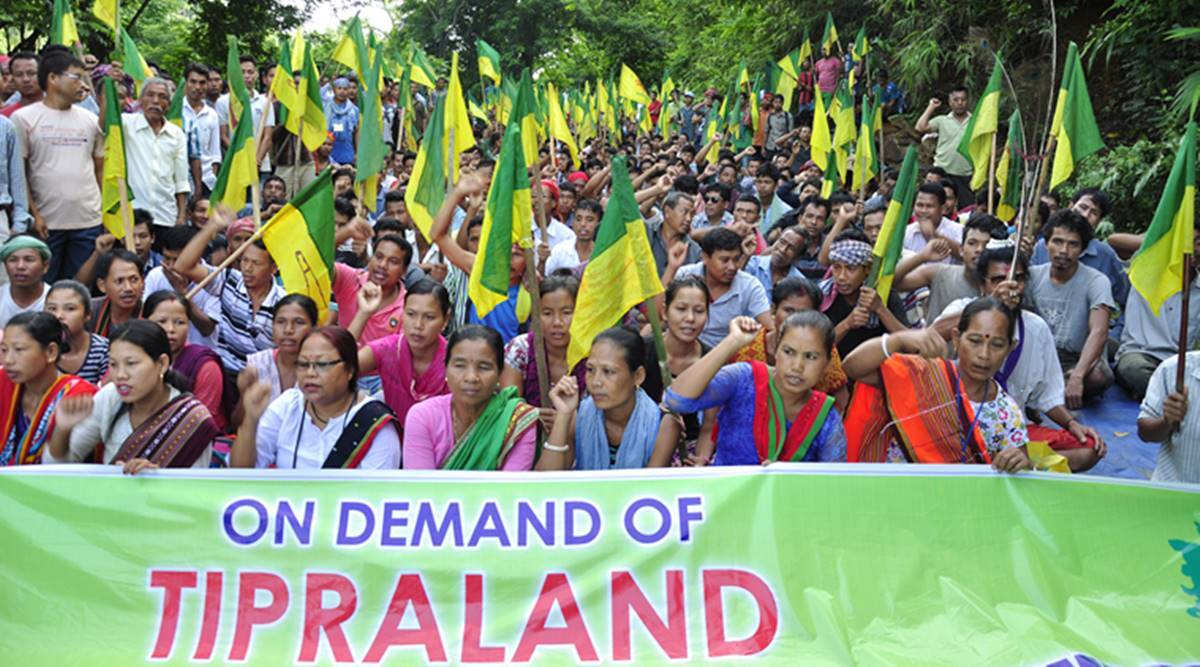

What is the Greater Tipraland demand raised by royal scion Pradyot Kishore?
Why In News?
Tripura royal scion Pradyot Kishore Manikya has recently announced his new political demand of ‘Greater Tipraland’, which he claims would serve the interest of tribals, non-tribals, Tripuri tribals staying outside Tripura, even those outside India in Bandarban, Chittagong, Khagrachari and other border adjacent areas in Bangladesh.
What is Greater Tipraland?
‘Greater Tipraland’ is essentially an extension of the ruling tribal partner Indigenous Peoples Front of Tripura IPFT’s demand of Tipraland, which sought a separate state for tribals of Tripura.
The new demand seeks to include every tribal person living in indigenous area or village outside the Tripura Tribal Areas Autonomous District Council (TTAADC) under the proposed model.
However, the idea doesn’t restrict to simply the Tripura tribal council areas, but seeks to include ‘Tiprasa’ of Tripuris spread across different states of India like Assam, Mizoram etc. as well, even those living in Bandarban, Chittagong, Khagrachari and other bordering areas of neighbouring Bangladesh.
Background:
The Maharani Regent of Tripura signed the Tripura Merger Agreement on 9 September 1949, as a result of which Tripura became a Part C state of India. It became a Union Territory, without a legislature, in November 1956 and an elected ministry was installed in July 1963.
Indigenous Peoples Front of Tripura (IPFT)
Formed in the 1990s, IPFT was floated with the objective of forming ‘Tipraland’ a separate state for tribal communities of Tripura. The party underwent several splits with splinter groups emerging from it till it resurfaced in 2009 under its current supremo NC Debbarma. It forged an alliance with the BJP before Tripura’s 2018 assembly elections and formed a coalition government.
The party’s prime demand of separate statehood hasn’t seen much progress yet, though a high power committee was formed by MHA to study social, cultural, economic and linguistic problems faced by tribal communities in the state and find out solutions to them.
